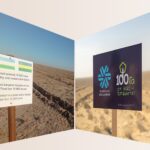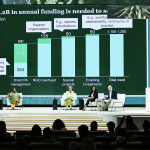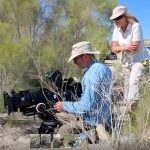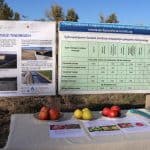By Melissa M. Rohde, Christine M. Albano , Xander Huggins, Kirk R. Klausmeyer , Charles Morton, Ali Sharman , Esha Zaveri , Laurel Saito , Zach Freed, Jeanette K. Howard , Nancy Job, Holly Richter, Kristina Toderich, Aude-Sophie Rodella , Tom Gleeson, Justin Huntington , Hrishikesh A. Chandanpurkar, Adam J. Purdy, James S. Famiglietti, Michael Bliss Singer2, Dar A. Roberts, Kelly Caylor & John C. Stell. Nature (2024). https://doi.org/10.1038/s41586-024-07702-8
This research, published in Nature on 17 July 2024, is the first time that groundwater-dependent ecosystems have been mapped on a global scale. Led by Dr Melissa Rohde, an ecohydrologist and environmental consultant, and a group of scientists from The Nature Conservancy (California (TNC-CA)) and the Desert Research Institute (DRI), the global effort brought together researchers from universities, non-profit organisations and institutions in seven countries around the world. The result is a global map of where aquifer-dependent ecosystems existed. Datasets were created based on available information collected within 2015 -2020 period. Authors collected six years of data from NASA’s Landsat satellite, which provides satellite images that can be used to estimate leaf water content, evapotranspiration, vegetation greenness, open water and land temperatures, and climate data that characterize water availability. Next, they used more than 30,000 data points of confirmed groundwater-dependent ecological sites. Ecosystems that depend on groundwater vary widely, from desert springs, to mountain meadows and streams, to coastal and inland wetlands and forests. These ecosystems are often hot spots for biological diversity worldwide, and are under increasing threat from climate change and human exploitation. which highlights the urgent need to protect GDEs from the threat of groundwater depletion. GDE map provides critically needed 62 information for prioritizing and developing policies and protection mechanisms across various 63 local, region, or international scales to safeguard these important ecosystems. These international authors efforts provide a conservative map of GDEs in drylands globally and an approach to define GDEs at local scales. Dr Timur Khujanazarov, Assistant Professor, Disaster Prevention Research Institute, Kyoto University, who was acknowledged for his contribution to the article, reviewed the dryland ecosystem of the Aral Sea Basin countries, including the role of groundwater in the impact of climate change and regional anthropogenic activities on the exacerbation of environmental risks. With climate change, the frequency of droughts is expected to increase, as Dr. Khujanazarov pointed out. This will put further pressure on already limited freshwater resources. Dr Kristina Toderich, Professor, International Platform for Dryland Research and Education (IPDRE), Tottori University, and Graduate School of Bioresources, Mie University, is a co-author of this article. She supported the creation of a regional dataset on desert and semidesert vegetation. Special focus was given to the characteristics of groundwater-dependent perennial vegetation plant communities dominated by trees, shrubs, bushes, perennial tall herbs, their conservation status and economic use. Species identified as groundwater-dependent were included as training data in the model. Dr. Kristina Toderich acknowledged the Blue-SATREPS project (Science and Technology Research Partnership for Sustainable Development JST, JPMJSA2001) for financial support. For more information on the article go: https://www.nature.com/articles/s41586-024-07702-8

























